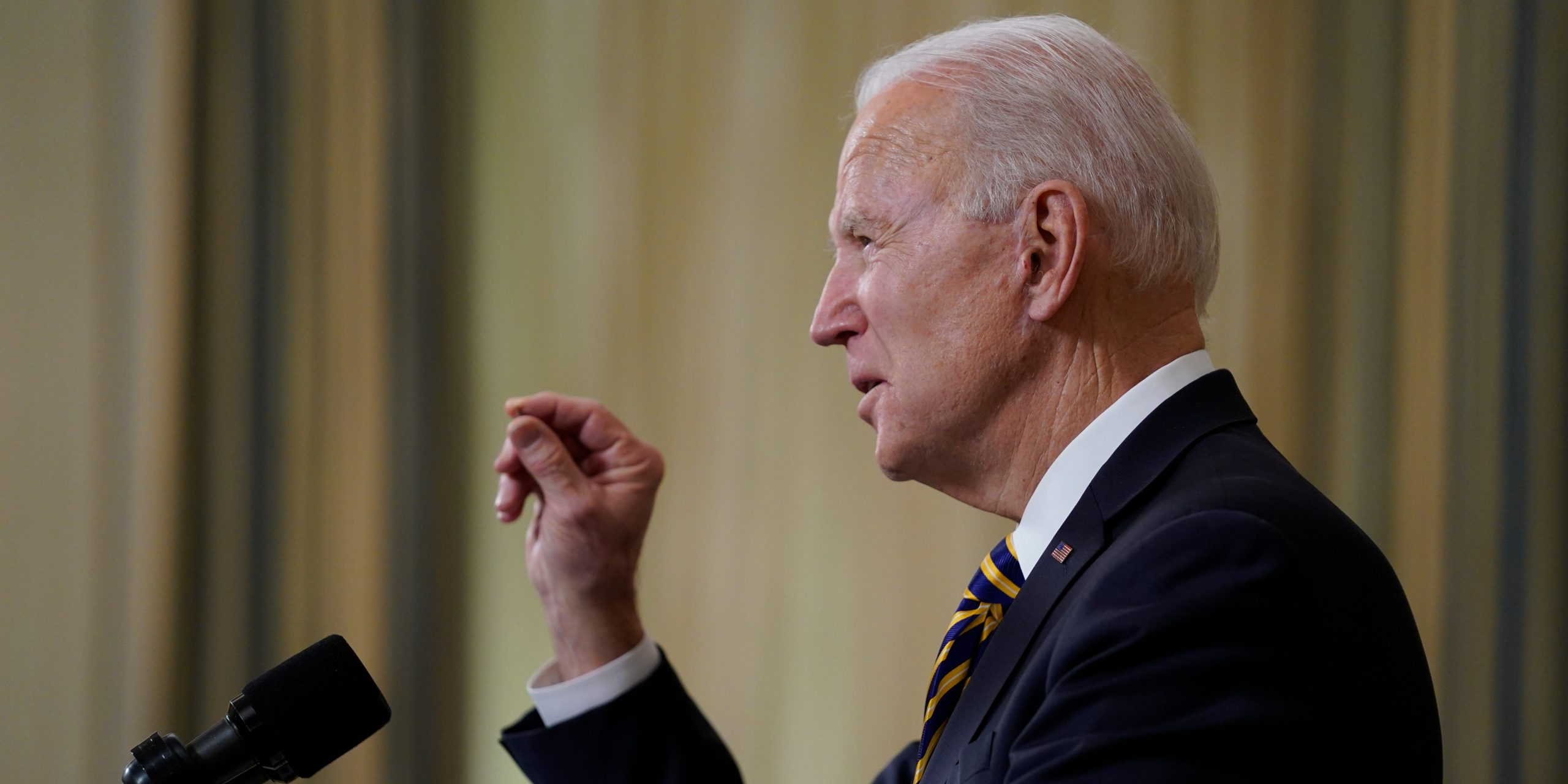
Evan Vucci/AP
- President Joe Biden warned against COVID-19 complacency in the face of new variants.
- Biden said that getting back to normal “depends on all of us.”
- COVID-19 cases are on the decline and vaccinations are ramping up in a race against the variants.
- Visit the Business section of Insider for more stories.
President Joe Biden warned Americans against getting complacent about COVID-19 as the threat of new variants complicate the rush to end the pandemic through vaccinations.
After a devastating winter surge of COVID-19 infections, the rates of new infections, hospitalizations, and deaths are now on the decline. New cases have decreased by 35%, hospitalizations are down by 30%, and deaths are down by 16% over the past 14 days, according to The New York Times.
The decrease in infections is likely due to a number of factors including Americans being more vigilant about COVID precautions, some partial immunity in communities where a substantial proportion of people have been infected, a ramping-up of vaccinations, and some seasonality-related factors, The Atlantic recently reported.
But speaking at an event to mark 50 million vaccinations during his term, Biden warned that even with the weather getting warmer, now is not the time for Americans to let their guard down.
“In five weeks, America’s administered the most shots of any country in the world, with among the highest percentage fully vaccinated,” Biden said. “It’s also true that while COVID-19 vaccinations are up, COVID cases and hospitalizations are coming down. But I need to be honest with you: cases and hospitalizations are going up as new variants emerge.”
Biden continued: "I want to make something really very clear: this is not a time to relax. We must keep watching our hands, stay socially distanced, and for God's sake, for God's sake, wear a mask...the worst thing we could do now is let our guard down."
The US is currently in a race to vaccinate its population before the rise of more contagious and potentially more deadly variants threaten to roll back much of the hard-won progress the United States has made so far.
"The question I'm asked most often is, 'When will things get back to normal?" Biden said. "My answer is always honest and straightforward: I can't give you a date. I can only promise that we'll work as hard we can to make that day come as soon as possible...this is not a victory lap, everything is not fixed, we have a long way to go. And that day when everything is back to normal depends on all of us."
There are two COVID-19 vaccines approved for use in the United States from Pfizer and BioNTech and Moderna, with over 68 million vaccine shots administered and 6.6% of the population fully vaccinated as of Thursday.
The pharmaceutical company Johnson & Johnson released promising data with high levels of efficacy against illness and death with its single-shot vaccine candidate, which is widely expected to receive emergency-use authorization from the FDA.
In his remarks, Biden predicted that the supply of vaccines will surpass demand in "60 to 90" days, and that rates of vaccine hesitancy, particularly in underserved and hard-to-reach communities, will go down as vaccine rates rise.
"I think when more people see other people getting the shots, it's going to build confidence," Biden said.
Cases of the B. 117 variant, which originated in the United Kingdom, are on the rise in the US, and have been detected in 42 states, according to The Times.
Scientists are studying new homegrown variants that have emerged in California and in New York City that could potentially be more contagious, though research on those variants has not yet been published or peer-reviewed.
While some vaccines may have less efficacy against certain variants, they are still highly effective in preventing severe illness, hospitalization, and death.
Pfizer, which developed one of the two vaccines currently approved for use in the United States, has a third booster shot to protect against variants in development.
